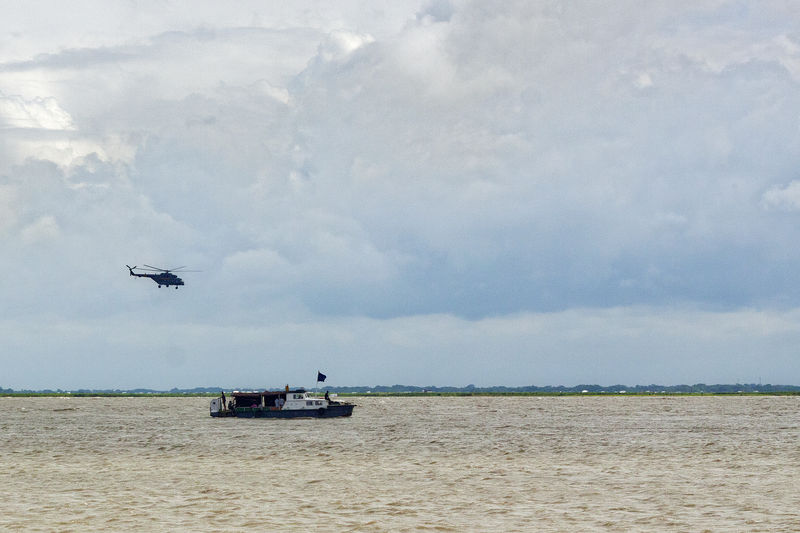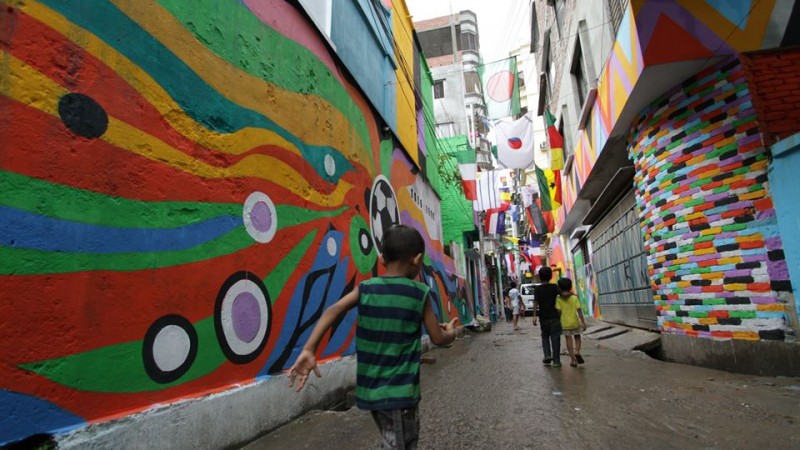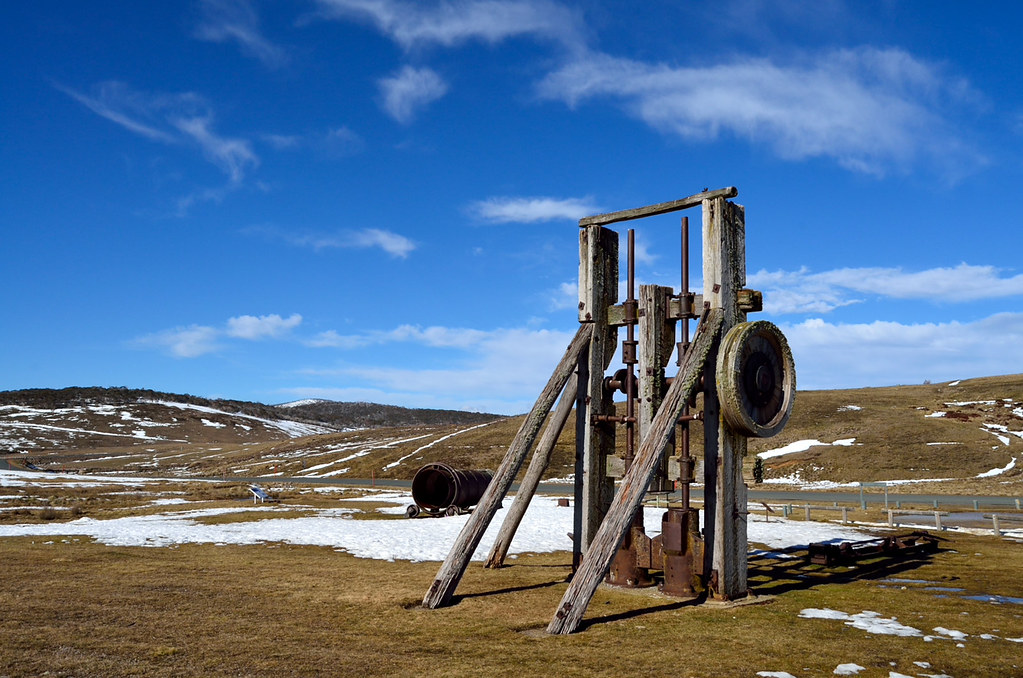I am featured in an article published in Asia Media Forum, Thailand. This is republished here purely for
archiving purpose:
 |
| Screenshot of the article |
Battle for Climate Change Waged in Cyberpace Too
By Lynette Lee Corporal
BANGKOK (Asia Media Forum) — Like veritable Davids to the status quo's Goliaths, who contribute one way or another to environmental apathy, bloggers have been busy using a very powerful weapon to smote climate change in the eye.
On Oct. 15, bloggers created a loud buzz in cyberspace via the Blog Action Day (BAD) '09 (www.blogactionday.org). BAD '09 has a yearly event since 2007, which aims to get together bloggers worldwide and have them write about a common cause on the same day — and hopefully onwards.
This year’s blog action day is being held against the backdrop of just-finished negotiations in Thailand, which are expected to lead to a new climate change deal in December 2009.
"Our primary plan is to connect as many bloggers as possible with the great organisations that are working hard every day around the world to confront the climate crisis," said Robin Beck, organising director of leading social action blog network Change.org, and the group behind BAD '09.
"On Oct. 15, we will have thousands of blogs that usually write about gadgets, or travel, or cars, or sports, or food, or any of hundreds of other topics all posting about one thing: climate change," Beck told the Asia Media Forum.
Bloggers are also expected to be creative by uploading videos, music or anything that would convey the message in a catchy manner.
As of Oct. 14, there are more than 6,300 registered blogs from 131 countries on the BAD site. Language translation, including into Chinese, are being done by volunteers and organisers expect to have about a dozen of languages up on the site come D-day.
According to Beck, as of Oct. 13, about a thousand blogs from 19 countries in the Asia-Pacific region alone have registered. Topping the list of countries with the most number of registered blogs are the Philippines with 167 blogs, Australia (165), Japan (128), India (123) and Indonesia (113).
Bloggers and environment advocates know only too well the need to have an inclusive global interaction and dialogue about the issue, and blogging is one of the easiest ways to do this.
"There are many government sponsored events or international conferences on critical issues. But do they have the capacity to engage every common people?" asked Rezwan, an avid Bangladeshi blogger (The 3rd World View - http://rezwanul.blogspot.com/) and Global Voices Online (http://globalvoicesonline.org/) regional editor for South Asia.
Having taken part in BAD activities since 2007, Rezwan recognises the gap between policymakers and ordinary citizens, especially when the former starts talking in rhetoric while the latter thirst for action.
"What bloggers can do is to discuss about the ground realities of the policies taken, personal experiences, observations, etc, which can provide important feedbacks to the policy makers," said Rezwan, also a translator coordinator for the Global Voices Bangla Lingua (http://bn.globalvoicesonline.org/).
Greenpeace South-east Asia media campaigner Chuck Baclagon agrees, saying that blogs "provide traction for any issue" and help people engage in conversation whether online or offline.
According to Baclagon, Greenpeace South-east Asia (http://www.greenpeace.org/seasia/en/) has its own community of about 300 bloggers who support and campaign for Greenpeace activities. Their Greenpeace Philippines Facebook site has over 8,300 fans and growing.
He said that Greenpeace blogs are written in a very personal manner. "There is power in presenting the issue from a personal context because it gives a very complex issue a human face," said Baclagon, who manages the environment watchdog's blogsite, www.blog.greenpeace.org.ph.
Moreover, said Rezwan, bloggers are part of the local communities, and that means attracting even non-bloggers to join in the discussion "via comments or in real life actions".
"Writing about issues like the environment in blogs is only a catalyst to some offline actions that need to be taken," he added.
Gilbert Sape, a presenter for 'The Climate Project' (http://www.theclimateproject.org/) under environment activist and 2007 Nobel Peace Prize laureate Al Gore, has seen for himself the power of blogs.
"A lot of people don't read news anymore. However, they read blogs. Thus, blogs are indeed a new source of information for many. Even decision-makers, particularly the populist ones, read blogs to weigh their position on issues," said Sape, who facilitates the international collaboration work of the Pesticide Action Network (PAN) International's regional centres. He is also former coordinator of Food Sovereignty and Ecological Agricultural Programme of PAN Asia-Pacific.
For an online cause to be successful, Girard Philip Bonotan, who works for a Bangkok-based international NGO on Southeast Asian heritage and culture, said that bloggers need to be united by a common cause and stick by it.
"By joining with larger groups that are not bloggers, the message that these groups want to spread can be easily conveyed," said Bonotan, a BAD member who maintains a blog at www.kawadjan.blogspot.com.
He, however, sees that there is still a dearth of blog posts on the environment. "My blogger network and the blogs I read are limited around certain interests, and sadly, that does not include the environment," he admitted.
One reason, said Baclagon, could be that while everybody is talking about climate change, they "still know so little about the issue".
"Climate change is a very complex issue and we need to put it in a language that is easy to understand," he said, adding that even bloggers are guilty of writing very technical stuff about it.
But more and more bloggers are learning from their oversights. Said Bonotan, "Bloggers have made their mark in how public opinion is shared, perhaps largely because of the nature of blog entries, which more often use colloquial language, hence, rather inclusive and accessible."
Rezwan also lauded the advantage of the technology in that "what bloggers write do not (get) obliterated... they remain in the webspace searchable by search engines".
For Baclagon, a good blog should always speak about how an issue directly affects a person. "A good blog, too, does not merely present a problem, but also gives an empowering message and a call to action," he said.
Sustaining the interest of bloggers and readers about climate change, said Sape, can be achieved by "providing concrete and tangible actions that readers can do".
"It could be from the simplest thing (like recycling or turning off the air-conditioning when not needed) to bigger actions (like donating money to NGOs or taking part in protest actions)," added Sape.
Knowing how vulnerable Bangladesh is to the effects of climate change, Rezwan can only hope that world leaders and individuals start to take the future seriously.
"The world needs to act, lend a hand and plan the right course of actions," he said.
(END/IPS/AP/AMF/LLC/JS/141009)






















![Reblog this post [with Zemanta]](http://img.zemanta.com/reblog_e.png?x-id=10c5859f-c2db-4c9a-8079-b2656ed117a9)







![Reblog this post [with Zemanta]](http://img.zemanta.com/reblog_e.png?x-id=2ec6bd74-79de-4ab7-bb5b-65e0867e4974)
![Reblog this post [with Zemanta]](http://img.zemanta.com/reblog_e.png?x-id=4f537418-628c-4259-9566-ff6e1143d327)

![Reblog this post [with Zemanta]](http://img.zemanta.com/reblog_e.png?x-id=136d6c38-71fe-45d2-b065-b62dd85f2679)



![Reblog this post [with Zemanta]](http://img.zemanta.com/reblog_e.png?x-id=6d072148-4f2a-488f-95b5-af6c0a808124)
![Reblog this post [with Zemanta]](http://img.zemanta.com/reblog_e.png?x-id=ca84703a-c116-40fb-87b3-1b6b317ada06)
![Reblog this post [with Zemanta]](http://img.zemanta.com/reblog_e.png?x-id=62a128f9-c27e-43c0-9938-bfc282facc8e)






